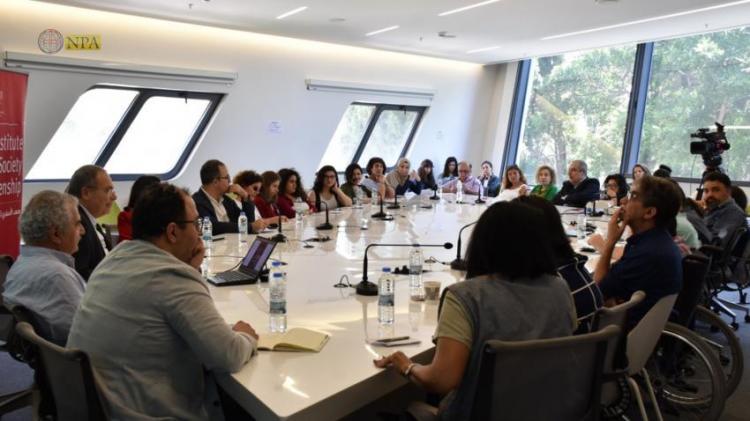Challenges face Syrian cultural situation in Lebanon
Challenges face Syrian cultural situation in Lebanon
Cultural figures from Syria and Lebanon met last Tuesday to discuss current Syrian cultural situation in Lebanon.
The session was held at Issam Fares institute with cooperation with Al-Asfari institute in American university to discuss the changes Syrian cultural field experienced in Lebanon.
The session discussed challenges done on Syrian cultural situation especially after Syrian crisis where the year 2011 was a turning point that changed Syrian culture features to face “difficult” challenges, as attendant figures described it.
With the beginning of Syrian crisis, a big Syrian cultural segment emigrated to Europe leaving its places to younger generations the thing affected cultural situation negatively, where the session discussed the gap left by brain drain in cultural field as a whole.
Attendants discussed legal environment in Lebanon which tightens restrictions on Syrian people moving: their enter, exit and residence procedures that affects negatively on Syrian cultural situation.
In their review legal restrictions, Abdullah Al-Kafri, “Itijahat” foundation chairman, mentioned the event of sending the corpse of a Syrian musician died in Lebanon, where they paid 30.000 $ to take the corpse out of the hospital and when they arrived in the border, they were surprised because Lebanese public security asked for 200 $ as a fee when the musician was alive saying that: “When one dies, the crime falls on him usually, so how about the fee”
Attendants pointed out to government support and care absence and to cultural horizons that affected Lebanese cultural ground causing “clear headache” the time in which this ground disputes with current basic stage for Syrian activity deeply.
They denoted that stage with introduction of Youssef Bezi, a Lebanese poet who opened with a poem of Syrian poet Muhammad Al-Magout “café in Beirut” showing how strangers wrote Beirut biography, memory and culture.
Beirut –Layal Khrobe-NPA

